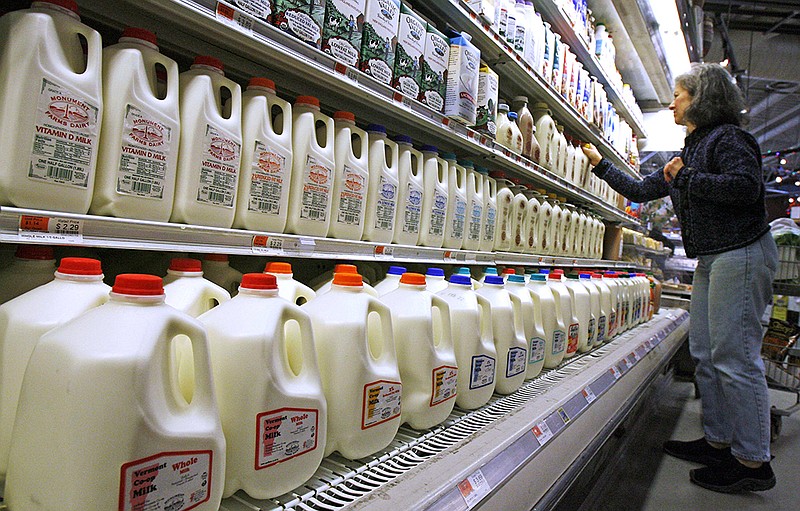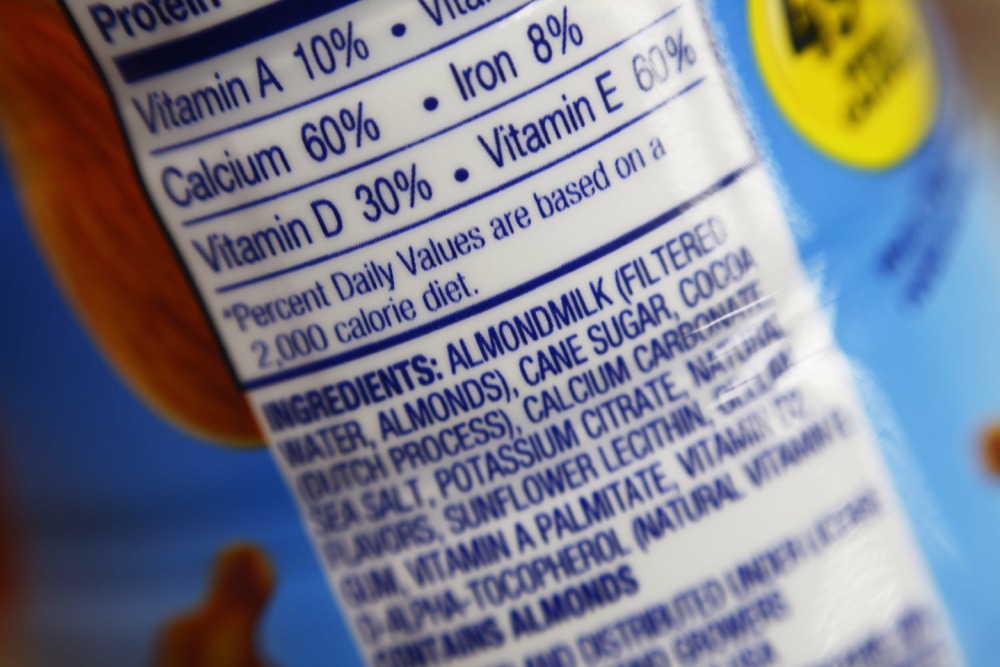I was in my freshman year of college the first time I heard that milk is an unhealthy beverage. My roommate took me to a presentation hosted by PETA, and the speakers claimed that the human body isn't designed to consume dairy after the first few years of life.
Up until then, I'd heard only good things about milk. My mind was filled with commercial slogans such as "Milk: It does a body good" and "Got milk?" featuring celebrities like Cindy Crawford and Mark-Paul Gosselaar. Throughout my childhood, they touted milk's ability to build strong bones and healthy bodies, and all the adults in my life had seemed to back that up.
Since finding research to support PETA's claims, I've now wholeheartedly subscribed to the idea that not consuming cow's milk is the best thing for my body.
Drinking plant-based milk was easy when soy was the only readily available nondairy option, but with the market for nondairy milk growing 61% since 2012, according to Mintel, an abundance of plant-based milk options have now flooded the shelves of neighborhood grocery stores. We compared the varieties to help you decide which belongs in your fridge.
Cow's milk
Pros: With loads of protein and vitamins, milk wins out over its plant-based counterparts in terms of nutrition. Dairy milk has more protein (8 grams per serving) than any of the plant-based varieties. Dairy products are also a major source of calcium for many adults, possibly helping to lower the risk of osteoporosis and colon cancer.
Cons: Cow's milk is high in saturated fat and retinol (vitamin A), which can weaken bones if consumed at high levels. That can negate the benefits of milk's calcium content, and when consumed in high amounts, calcium can increase the risk of prostate and possibly ovarian cancer, according to the Harvard School of Public Health. It recommends limiting consumption of milk and dairy foods to no more than one to two servings per day.
Going back to PETA's claim about milk being unhealthy, about 65% of humans have a reduced ability to digest lactose, the sugar found in breast and cow's milk, after infancy, according to the National Institutes of Health. Symptoms of lactose intolerance include upset stomach, diarrhea and gas.
And research shows milk is not as good for bone strength as the commercials of my childhood suggested. A 2012 study published by the American Medical Association in the Archives of Pediatric and Adolescent Medicine showed that active children who consume the largest quantities of milk have more bone fractures than those who consume less.
Moreover, milk is the No. 1 source of saturated fat in children's diets.
Shopping tips
When selecting any plant-based milk, note that many of those labeled “plain” or “original” have added sugar, so opt for the unsweetened variety. Read the label as well; nutritional content varies depending on how the milk is fortified.Check for the fortifying and stabilizing ingredients tricalcium phosphate and disodium phosphate, which in high amounts can increase the risk of kidney and heart disease and bone loss, according to Consumer Reports. Another stabilizing ingredient, carrageenan, should be avoided by people with colitis or inflammatory bowel disorders because it can trigger inflammation.
Soy milk
Pros: Made from ground soybeans or soy protein isolate, soy milk contains 7g of protein per cup, the highest protein content of all plant-based milks. At 4g per cup, its fat content is low compared to 2% and whole cow's milk, which come with 5g and 8g respectively. Soy milk also lacks the saturated fat found in most cow's milk, which can lead to high cholesterol and heart problems; and soy is a good source of potassium.
Cons: Thickeners or vegetable oils are sometimes added to improve taste and consistency. (See our shopping tips for more info.)
Almond milk
Pros: At just 30-40 calories per cup, almond milk is the lowest-calorie option. Some brands have more calcium (though it's fortified rather than natural) than cow's milk, as well as less saturated fat and more unsaturated fat. Those healthful fats may help people lose weight and keep it off, according to medicalnewstoday.com. Almond milk is also high in vitamin E, a strong disease-fighting antioxidant.
Cons: It's very low in protein at just 1g.
Oat milk
Pros: Oat milk takes the middle ground with fat and protein content, with 4g of each per cup. With its smooth texture and slightly sweet flavor, oat milk is one of the better tasting options (particularly with coffee). Some oat milk provides more riboflavin, or vitamin B-2, than cow's milk - up to 45% of daily value vs. 38.5% - which helps the body break down carbs, fats and proteins to produce energy and is important for growth and overall health. Oat milk is also high in beta-glucans, a soluble fiber with heart-health benefits. Beta-glucans form a gel-like substance inside the gut, which can bind to cholesterol and reduce its absorption.
Cons: Although the sugar is natural, oat milk is very high in carbohydrates at 16g per cup.
Coconut milk
Pros: Coconut milk has the most healthy fats of all the milks. Most are in the form of medium-chain fatty acids, which are quickly metabolized by the liver and therefore less likely to be stored as fat. Among those is lauric acid, which destroys a wide variety of disease-causing organisms.
Cons: Coconut milk is probably the least nutritious of all the milks. It's very low in protein at 1g, and contains 16.9g of saturated fat (vs. 3g in 2% milk). There's often added sugar as well.

